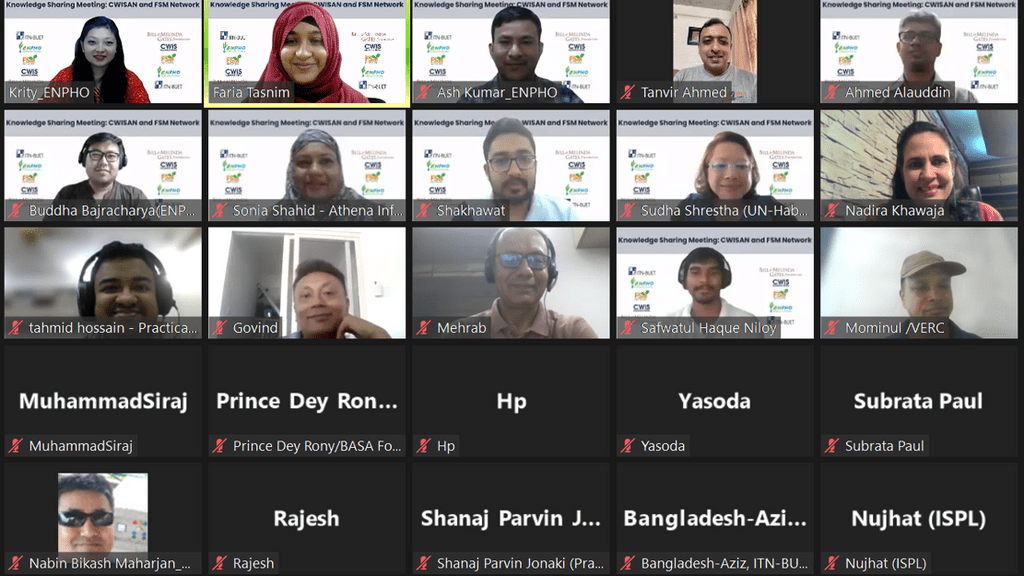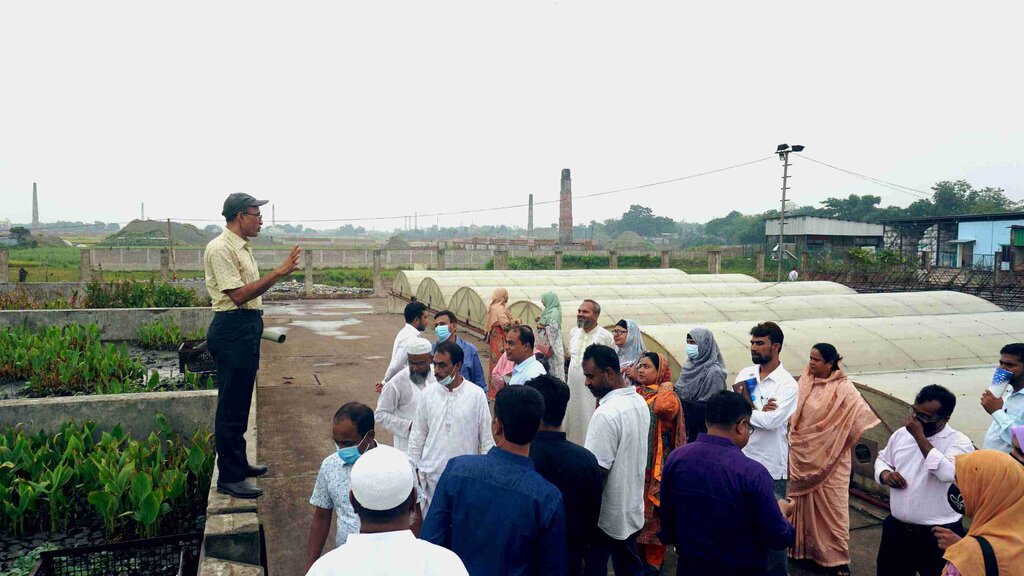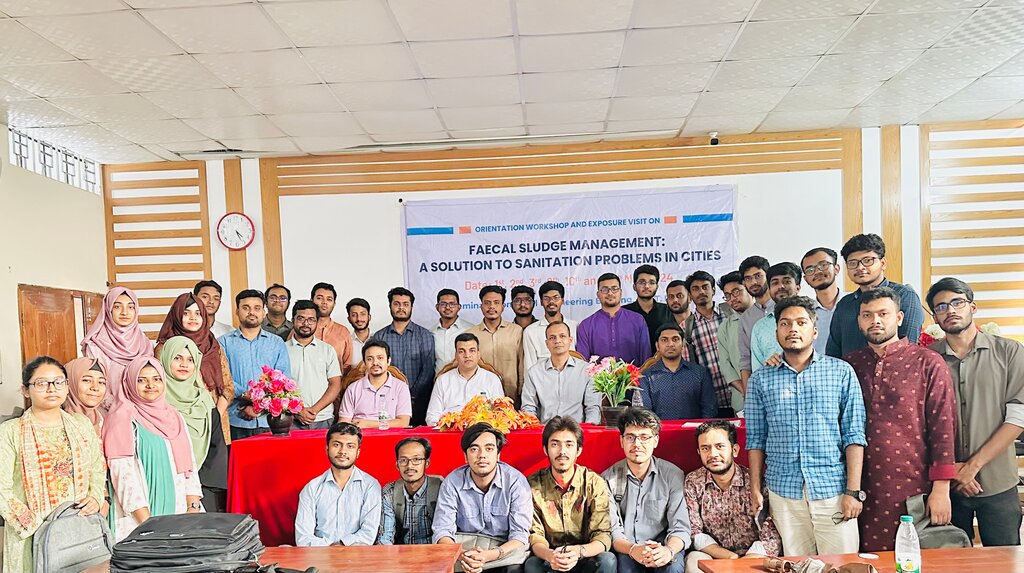A six-member team from ITN-BUET visited four cities in India from 23-30 September, 2019 aiming to share knowledge on FSM practices and create opportunities for future collaboration to build capacity on sustainable fecal sludge management.
In Delhi, a daylong meeting was held with National Institute of Urban Affairs (NIUA) and its partner organization namely, KPMG, ECOSAN Services Foundation, Tide Technocrats Private Limited and WASH Institute. The aim was to understand the government support and management modalities at national and state level especially on capacity building, inter-organization collaboration mechanism, appropriate treatment technologies considering geo-spatial situations, social mobilization, financial models, etc. Another learning sharing meeting was held with the Centre for Science and Environment (CSE).
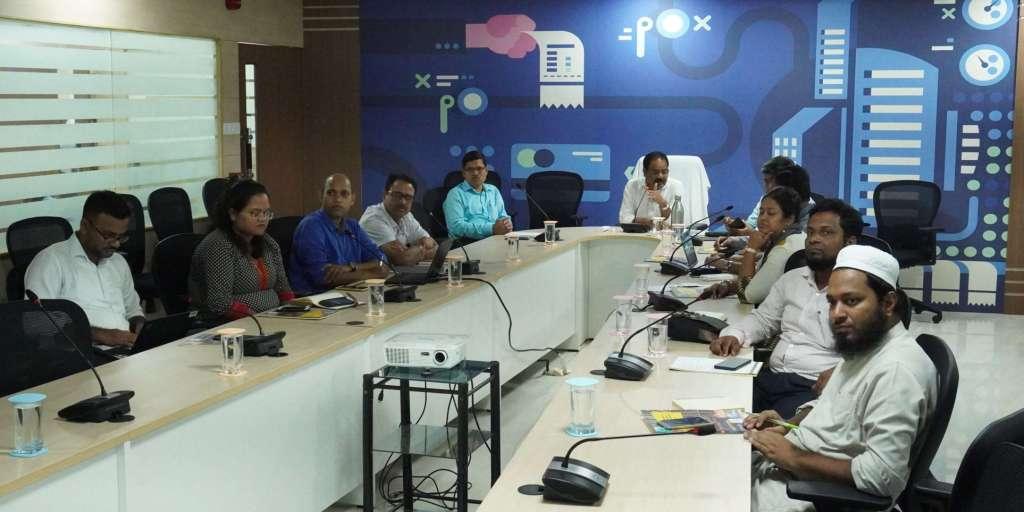
A number of field visits were incorporated in the tour. Visiting the Anil Agarwal Environment Training Institute, a sister concern of CSE, at Nimli, Rajasthan helped to understand how an FSM laboratory operates and what challenges and opportunities Bangladesh may have to face to initiate the process of establishing country wide FSM labs while maintaining international standards. In order to understand the technical and management aspects of fecal sludge treatment system the team visited Bhubaneswar Faecal Sludge and Septage Treatment Plant and Puri Sludge Co-Treatment Plant.
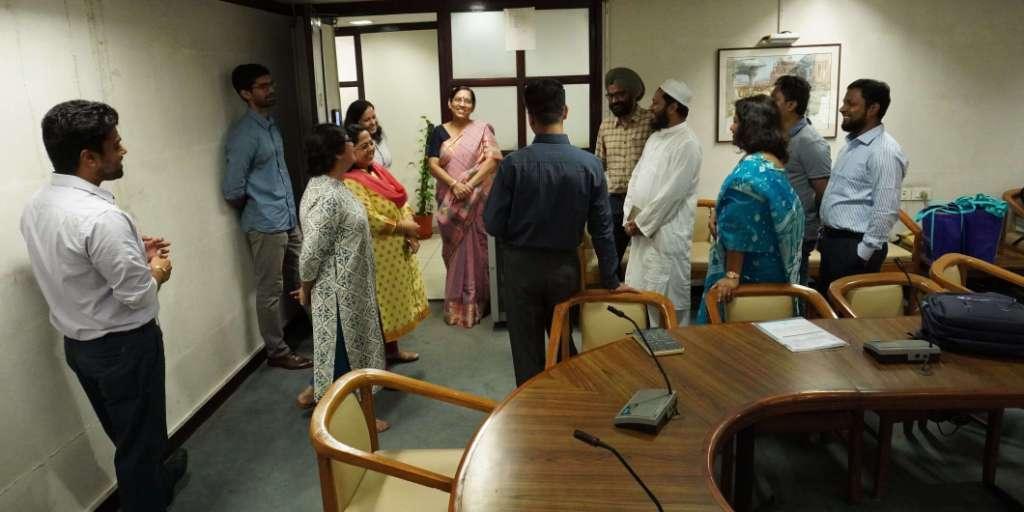
A meeting with the Orissa Water Supply & Sewerage Board was organized with support from Ernst and Young (E&Y) to understand how the state became one of the pioneers to provide city wide FSSM services in India. Finally, the team had a learning sharing meeting with East Kolkata Wetland Management Authority to understand how they have utilized the natural low-lying water body with an area of 12,500 Ha to manage the waste water of the entire city. It is to be noted that, the city of Kolkata is completely managed by sewer network and there is no open sewer drain or on-site sanitation.
The visit opened windows for all the organizations to know about the current activities and future plans of each other and find ways for collaboration to ensure proper fecal sludge management. ITN-BUET will utilize the strengthened relationship to build capacity of LGD, DPHE, LGED and other relevant Government and Paurashava representatives and officials through exposure visit. Such events will encourage them to imply the learnings in their respective working areas. The visit has given ITN-BUET scope to emerge as a regional learning and networking center for FSM.


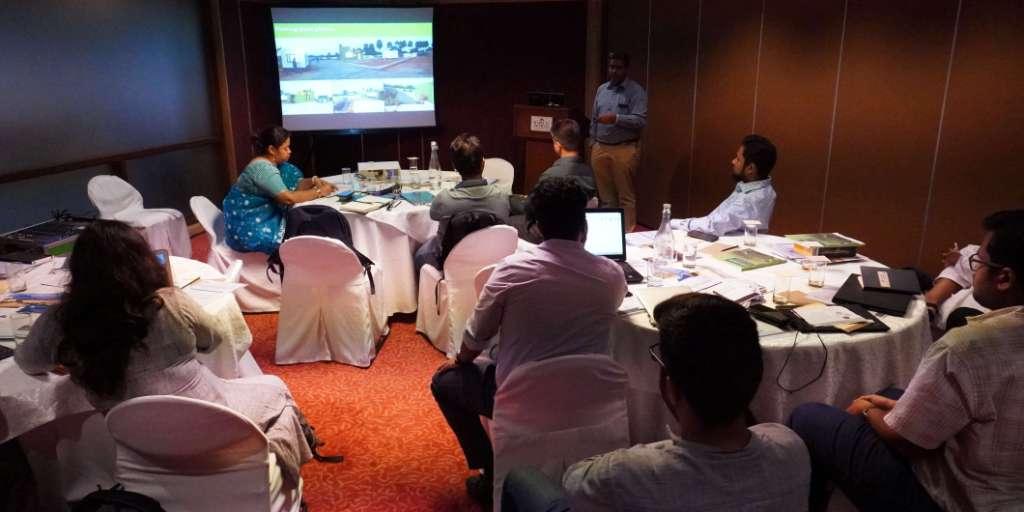
.jpg)
